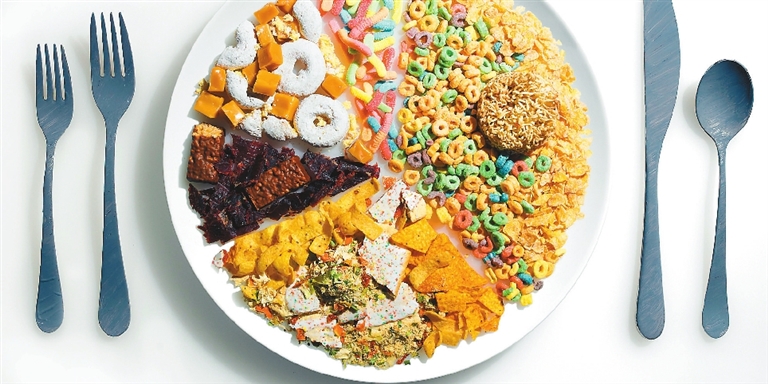
THE quick and easy noshes you love are chipping away at your mortality one nibble at a time, according to new research from France: We face a 14 percent higher risk of early death with each 10-percent increase in the amount of ultraprocessed foods we eat. “Ultraprocessed foods are manufactured industrially from multiple ingredients that usually include additives used for technological and/or cosmetic purposes,” wrote the authors of the study, published Monday in the journal JAMA Internal Medicine. Ultraprocessed foods are mostly consumed in the form of snacks, desserts, or ready-to-eat or heat meals, and their consumption has largely increased during the past several decades. This trend may drive an increase of early deaths due to chronic illnesses, including cancer and cardiovascular disease, the researchers say. To understand the relationship between ultraprocessed foods and the risk of an earlier-than-expected death, the researchers enlisted the help of 44,551 French adults 45 and older for two years. Their average age was 57, and nearly 73 percent of the participants were women. All provided 24-hour dietary records every six months in addition to completing questionnaires about their health, physical activities and sociodemographics. The researchers calculated each participant’s overall dietary intake and consumption of ultraprocessed foods. Ultraprocessed foods accounted for more than 14 percent of the weight of total food consumed and about 29 percent of total calories, they found. Ultraprocessed food consumption was associated with younger age, lower income, lower educational level, living alone, higher BMI and lower physical activity level. Over the study period, 602 participants died. After adjusting for factors such as smoking, the researchers calculated an associated 14 percent higher risk of early death for each 10-percent increase in the proportion of ultraprocessed foods consumed. The authors speculate that the additives, the packaging (chemicals leech into the food during storage) and the processing itself, including high-temperature processing, may be the factors that negatively affect health. The “findings make sense, given what we know to date about the deleterious effects of food additives on brain function and health, but the effects observed are very small,” wrote Molly Bray, chairwoman of the Department of Nutritional Sciences at The University of Texas at Austin, in an email. She was not involved in the research. Nurgul Fitzgerald, an associate professor in the Department of Nutritional Sciences at Rutgers, The State University of New Jersey, offered “kudos to the authors” for a study that is “strong” in terms of design. “We are living in a fast world, and people are looking for convenient solutions. We are always stretched for time,” Fitzgerald said. “People are looking for quick solutions, a quickly made meal.” When selecting food, taste is the No. 1 factor for most consumers, she said, but price and convenience are also important, and with ultraprocessed foods, that convenience factor is “probably top of the list: grab and go, ready to eat.” Fitzgerald recommends that people look not only at the front of a package when they buy ready-made meals, but also at the back. “Look at the ingredients list. Do you understand all those ingredients that go into your foods?” she asked. She suggests people buy only those products “with the least number of ingredients and with ingredients you understand.” (SD-Agencies) | 
